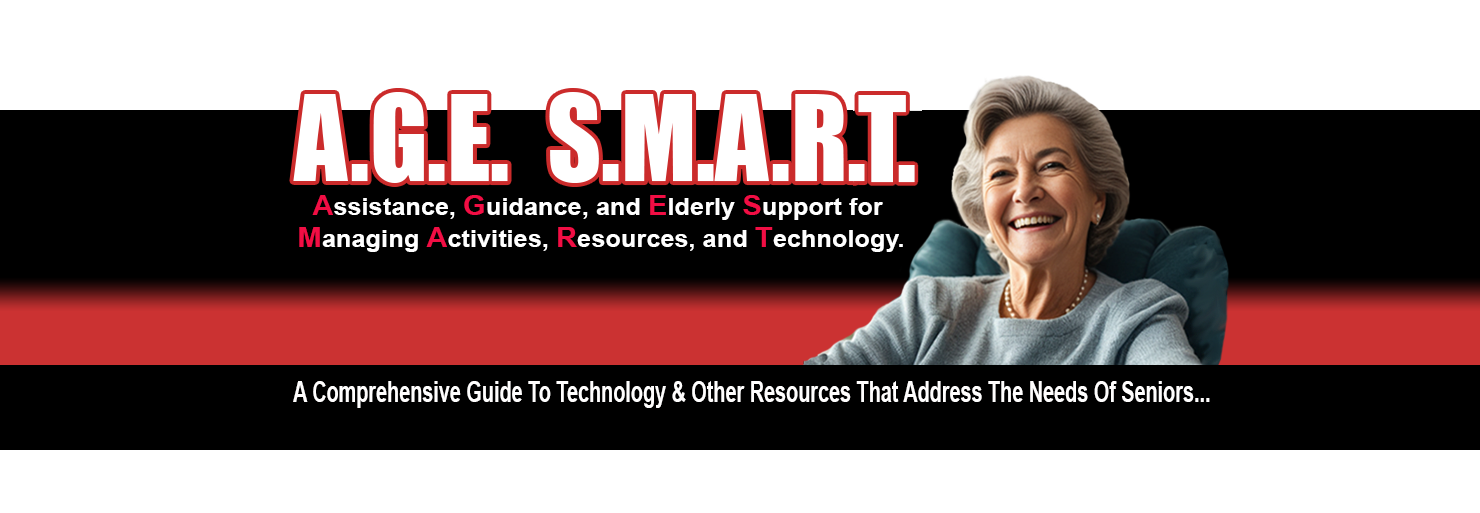- Cognitive Stimulation
- Communication
- Daily Living Assistance
- EZ Relaxing Coloring Digitally
- Fall Detection
- Financial Management
- Gratitude Journal
- Grocery Delivery
- Health Monitoring
- Home Maintenance
- Home Monitoring
- Medication Management
- Memory Support
- Mental Health Support
- My Appointments
- Personal Assistants
- Remote Caregiving
- Safety
- Social Connection
- Telecommunications
- Telehealth
- Today's To Do List
- Transportation
- Transportation Monitoring
- Word Search Puzzles

Health Monitoring
- Technology solution: Remote health monitoring devices, like blood pressure monitors or glucose meters that connect to a smartphone app, allow seniors to track their vital signs and share the data with their healthcare providers. This can help ensure timely intervention and reduce the risk of medical emergencies.
Garmin: https://amzn.to/4gEwJqd
Oura Ring: https://amzn.to/3XKBZ2Y
Dexcom: Dexcom
As technology continues to advance, remote health monitoring devices have become an essential tool for senior citizens to manage their healthcare effectively. These devices allow seniors to monitor their vital signs, such as heart, blood pressure, blood glucose levels, and, from the comfort their own homes. By real-time data to healthcare providers, remote health monitoring devices enable timely interventions and reduce the risk of medical emergencies for seniors.

One of the key advantages of remote health monitoring devices is the ability to empower seniors to take control of their health. By regularly monitoring their vital signs, seniors detect any changes or abnormalities early on, allowing them to address potential health issues before they escalate. This proactive approach to healthcare can lead to better outcomes and improved quality of life for seniors.
Furthermore, remote health monitoring devices help healthcare providers track seniors' health status more accurately and make informed decisions about their care. With access to real-time data, healthcare providers can detect any concerning trends or fluctuations in seniors' health and intervene promptly to prevent complications. This proactive monitoring can reduce hospitalizations, emergency room visits, and overall healthcare costs for seniors.
Real-life success stories demonstrate the significant impact of remote health monitoring devices on senior healthcare management. For example, a study published in the Journal of Medical Internet Research showed that seniors who used remote health monitoring devices experienced improved blood pressure control and better medication adherence compared to those who did not use the devices. This highlights the potential of technology to enhance seniors' healthcare outcomes and overall well-being.
Despite the numerous benefits of remote health monitoring devices, there are some potential drawbacks and challenges associated with their use. One common concern is the privacy and security of the data collected by these devices. Seniors may be hesitant to use remote monitoring technology if they are worried about their personal information being compromised. To address this issue, healthcare providers should ensure that all data collected is encrypted and stored securely to protect seniors' privacy.
Another challenge is the potential for seniors to feel overwhelmed or confused by the technology. Not all seniors may be comfortable using electronic devices or interpreting the data collected by remote health monitoring devices. To overcome this challenge, healthcare providers should offer thorough training and support to seniors to help them navigate the technology effectively and understand the significance of the data being collected.
In conclusion, remote health monitoring devices have the potential to revolutionize senior healthcare management by providing seniors with the tools to monitor their vital signs and share data with healthcare providers for timely intervention. By empowering seniors to take control of their health and enabling proactive monitoring by healthcare providers, remote health monitoring devices can improve health outcomes, reduce medical emergencies, and enhance seniors' overall well-being. With proper training and support, seniors can harness the benefits of remote health monitoring technology to lead healthier and more independent lives.